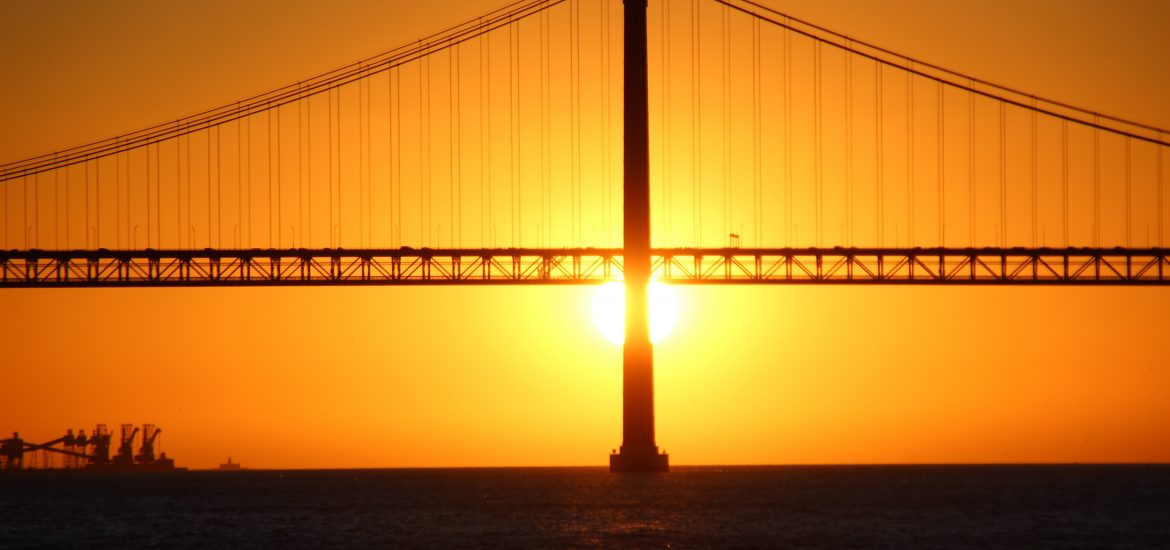
In the early fifteenth century, Portuguese explorers began spanning the globe in search of riches in new colonies and trading outposts. They were roughly a century ahead of their maritime European rivals, Britain and Spain, in launching the Age of Discovery. Today, Portugal is once again outpacing its neighbors in embracing a clean energy future.
In July, Portugal held a solar power auction that yielded 1.15 GW of capacity out of an offered 1.4 GW and, more impressively, the world’s lowest bid ever at €14.70/MWh or US$16.54/MWh. This broke the previous world record set by Brazil’s July 2019 211-MW auction, which offered $16.95/MWh. Brazil had, in turn, beat out California’s 200-MW June auction ($19.97/MWh). California had previously topped a Nevada’s 120-GW March auction ($0.02175/kWh).
The figures are dropping quickly, but some skepticism is in order. Chief executive of Spanish energy forecasting service AleaSoft Antonio Delgado Rigal said: “This price does not exist in the market and it is not even an indicator of the future price of power in the electric market…We are not questioning the auction’s results,” but it “may include some conditions that we don’t know yet, which may have made such an offer possible.”
Nevertheless, the auction was considerably larger than the previous record-setters and smashed the previous price bid in the highly competitive European market. Germany held three rounds of auctions for 750 MW earlier this year – the lowest bid was at €39.70/MWh. Few auctions in Europe have broken the €50.00/MWh mark. Portugal’s push into solar, moreover, bolsters its already robust record on renewables. The country is blazing its own path into a cleaner future, one that its neighbors are likely to follow.
Irrational exuberance
It is easy to get overexcited by headlines. Large increases in renewable generation create bubbles, and bottlenecks, and countries simply don’t have the distribution and storage infrastructure, not to mention the actual demand, to handle the new additions or export them. Scottish wind is such a case. Spain is now concerned about having a similar problem with solar and tightened its grid connection rules in August.
The Portuguese situation bears similarities to Spain, and the grid operator REN has instituted a lottery system for awarding future permits where capacity currently does not exist. In June 2017, it also announced that it would invest €814 million in new infrastructure by 2027. The country’s energy plan is to make renewables 80% of total power consumption by 2030 and 100% by 2050. This includes 8.1 GW-9.9 GW of solar by 2030. These targets are ambitious, but not uncommon among European countries.
What makes Portugal’s solar push so encouraging is that it comes off an incredible 2018, in which renewables accounted for 55% of the country’s total electricity demand. Wind accounted for 24.3% and hydro for 24.1%; these sources have long been the staples of Portugal’s renewable energy generation. The remaining came from biomass and solar.
In March 2018, the country actually produced more total power with renewables than it could even use. Generation reached 103.6% of total consumption. This was not altogether new, as Portugal’s renewable generation reached 99.2% in 2014. Oil and gas imports still fill demand in specific sectors, a reality for many large producers of renewables, but the trend is nevertheless encouraging.
Sun chasing
The dramatic decline in the cost of generating solar PV over the last decade has brought a slew of new capacity online. The International Energy Agency reported that solar PV generation increased by 30% in 2018 alone. New capacity additions were flat in 2018, but had doubled in 2016 and 2017. Based on a rough survey of stories, including the record-breaking bid prices, capacity will likely grow in 2019.
If solar power is this cheap in Europe, we could be entering a golden age of solar. Yet it is also worth considering that we are picking the low-hanging fruit – the locations with the best conditions are being chosen. The risk in the long term is that we overharvest now, setting unrealistic price expectations that cannot be met down the road, particularly if problems handling capacity remain. The lack of battery storage, on the other hand, raises the more immediate question: will Portugal’s plans retain enough baseload power generation to offset the intermittency of wind and solar.
It would be easy for Portugal to rest on its laurels given its strength in hydro and wind. But, in order to cast aside fossil fuel imports, it is aggressively chasing the sun. If these plans come to fruition and at such incredibly low prices, Portugal will be a renewable energy dynamo.
Photo credit: pxhere.






[…] https://www.energy-reporters.com/opinion/by-adding-solar-portugal-pushes-all-in-on-renewables/ […]